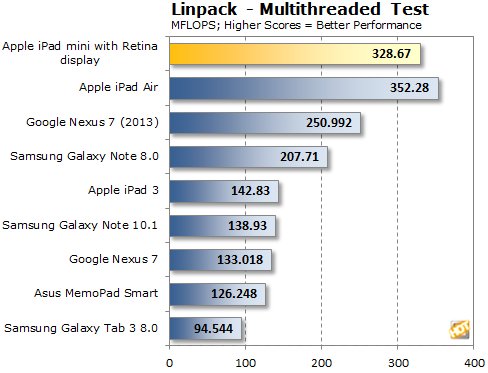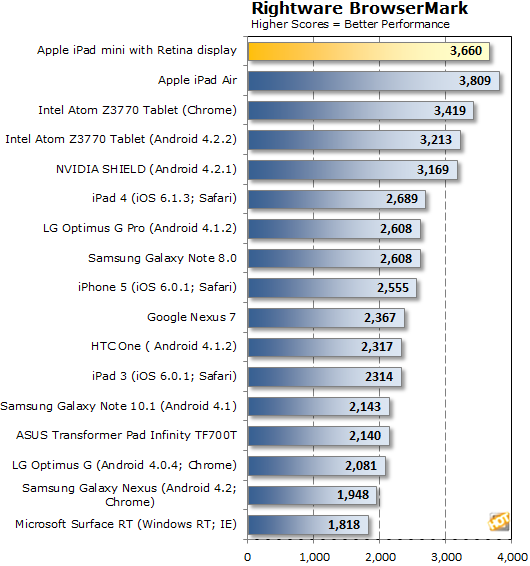Apple iPad mini with Retina Display Review
In the following tests, we will take a look at how the Apple iPad Air compares to other tablets by running a few common benchmarks to evaluate CPU and web browsing performance.
|

The Linpack test has a tendency to post wildly inconsistent results, so the way we handle that is by running it over a dozen times, and then taking an average of three consistent runs after that, discarding any scores that jump way out of the norm. In this case, the iPad mini with Retina display's dual-core A7 processor combined with 1GB of RAM posted a score of around 328, coming out ahead of all the other tablets we pitted it against, except the iPad Air.
Essentially, the internals of both of Apple's new tablets are the same, save for a small 100MHz clock speed difference, so it makes sense to expect neck-and-neck performance when comparing the two side-by-side.

Pages load fast and respond the way you would expect, though by limiting the iPad mini's RAM to just 1GB, tabs will sometimes need to reload if you open a handful of them. As we said in our iPad Air review, we'd really like to see Apple double up the amount of RAM in its flagship tablet line.

Here we have another strong showing for the iPad mini with Retina display. What's interesting to note here is that it scored significantly higher than the iPad 4, underscoring Apple's claims that the A7 SoC is a big improvement over previous processors. Still, the iPad Air sneaks past the mini here, with a bit more performance due to its slightly increased A7 clock speed.






